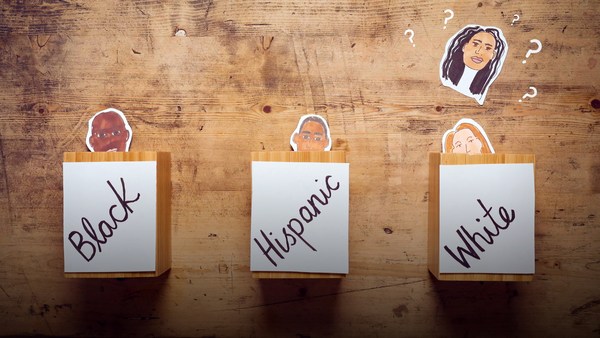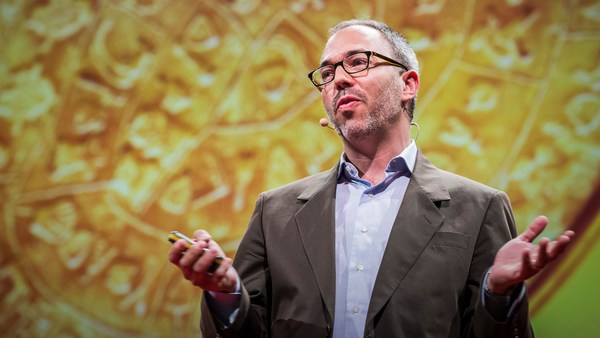There are things we accept as obvious truths that aren't necessarily backed up by data. For example, the idea that cousin marriage is, to use a scientific term, icky.
[Am I Normal? with Mona Chalabi]
First off, cousin marriage is way more common than you may think. Approximately 10 percent of the world's families are headed by couples who are second cousins or closer. That's more than 750 million people. And it maybe wildly out of fashion in Europe and North America now, but like hoop skirts and top hats, cousin marriage used to be a much more common sight.
People like Charles Darwin, Edgar Allan Poe and Albert Einstein, all married their first cousins. President Franklin Delano Roosevelt married his fifth cousin, Eleanor Roosevelt. She didn't even have to change her last name. One study looking at millions of genealogy profiles concluded that between 1650 and 1850, the average person was fourth cousins with their spouse.
I know, I know, what the hell is a fourth cousin? Well, it basically means that the average person had the same great great great grandparent as their romantic partner. So why was that? Well, marrying a cousin meant keeping money and power within the family and maintaining your social relationships. It was also about proximity. If you weren't traveling far in your young life, you're more likely to end up with someone you already know, like a second cousin.
But even with the onset of the railroad and the industrial revolution, it still took another 50 years for cousin marriage to go out of style in Western society. Mobility may have played a factor, but researchers also think that greater autonomy for women and smaller family sizes, meaning that there were just fewer cousins to marry, also influenced the change.
Though it became much less popular on both sides of the Atlantic, it was only in the US that it became illegal. Following the Civil War, the American government took a greater interest in overseeing more elements of daily life, including marriage. American states began to outlaw not only interracial marriage but cousin marriage as well. Today, 32 states either outright ban the practice or restrict it to those who seek genetic counseling, are beyond reproductive age or are sterile.
It's estimated that less than one percent of American couples are cousins. But the widespread illegality, not to mention the social stigma, makes quantifying it quite difficult. If you ask people why cousin marriage seems wrong, health might come up. The fear of birth defects and genetic disorders has influenced the change in social norms. But in 2002, researchers from the National Society of Genetic Counselors found that the increased risk was a minor one. In the general population, the risk that a child will be born with serious complications is three to four percent. With a first-cousin couple, the risk increased by 1.7 to 2.8 percentage points. And with those figures, the researchers concluded that there was no biological reason to discourage cousins from marrying.
Look, I totally get it. Whether you fancy your cousin or not, depending on where you're from, this can still be a bit of a taboo subject. But the truth is, our feelings around it are shaped by the culture we live in and not necessarily by whether it's objectively dangerous or not. After all, if it wasn't for cousin marriage, you probably wouldn't be here.





